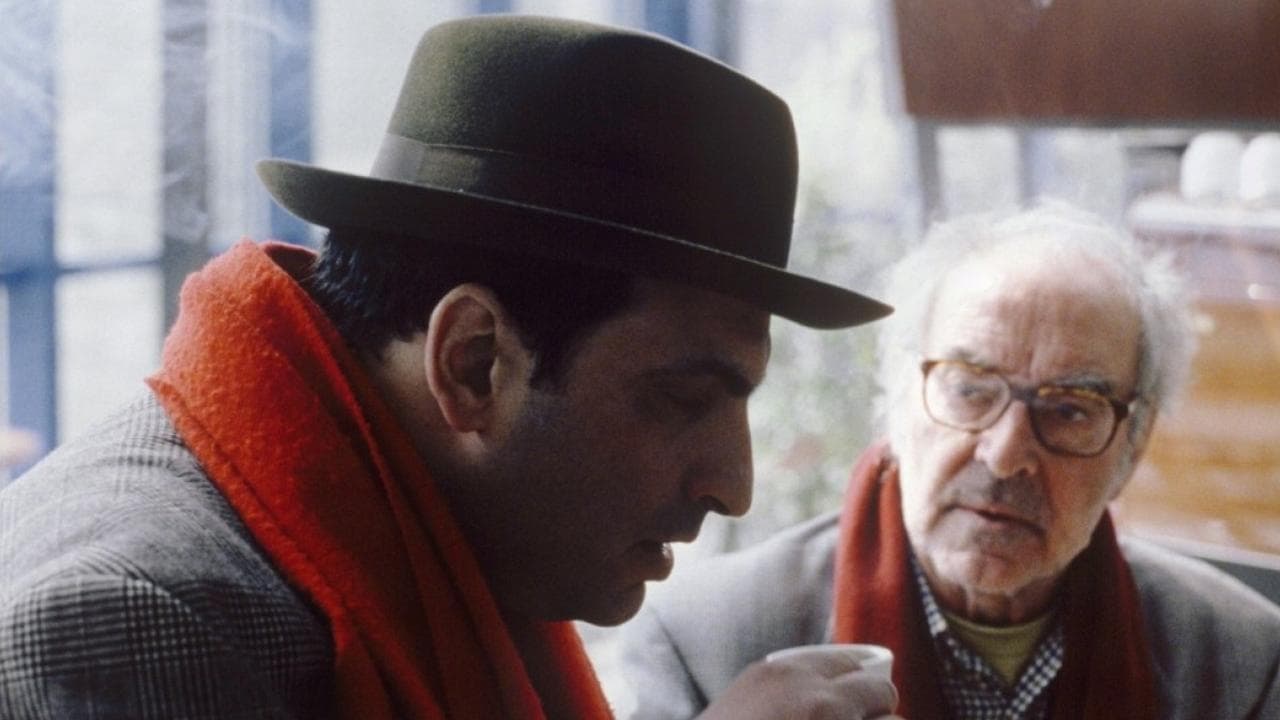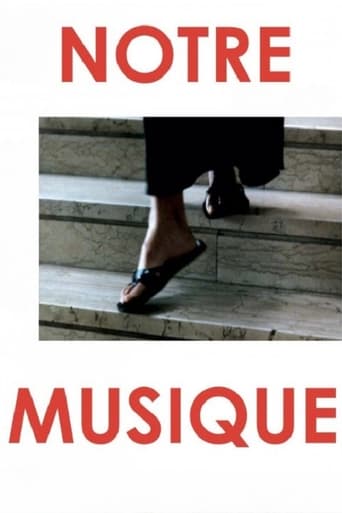



Strictly average movie
Lack of good storyline.
It's the kind of movie you'll want to see a second time with someone who hasn't seen it yet, to remember what it was like to watch it for the first time.
View MoreGreat story, amazing characters, superb action, enthralling cinematography. Yes, this is something I am glad I spent money on.
View MoreThis is not entertainment...I'd seen Contempt (1963) and Breathless (1960) many years ago and thoroughly enjoyed both. After 1964, I sort missed all that he directed until now, which appeared on late-night TV. And no wonder it was on so late at night...It seems that, as many of us get older and maybe wiser, we like to expound on things philosophical. Bergman did it well, and without resorting to didactic circularity or confusion and still managed to tell a good story. Woody Allen uses satire brilliantly for the same purpose.However, Godard here uses the bare bones of a simple, quasi-documentary style story and one that it episodically fractured and with much symbolism to reflect upon 'what it all means': that is, life, death and the whole damn thing. Using the current Israeli problem with Palestine and vice-versa, he explores the three concepts of Hell, Purgatory and Heaven, using each to show what humanity has done, what it's doing and where it should be going, respectively.The first, Hell, is obvious: with a montage of cuts from a multitude of news and film clips, Godard shows us the extent to which we prey upon each other even as we pray for each other. So, there are some real all too real scenes of the dead, the dying and the executed during the many wars that have been documented during the last hundred years or so. Nothing new here at all...The second, Purgatory (a place for waiting), is well an exposition about waiting: waiting for a bus, for a train, for a plane, for a meeting to start, for a bridge to be rebuilt, for a nation to recover from war, for people to begin to understand each other. And this is all done within the thin framework of the story of Olga (Nade Dieu), the Jewish journalist from Tel Aviv who is attending a lecture by Godard (playing himself) in Sarajevo, and who is trying to understand why human problems cannot seem to be resolved, no matter what. Significantly, by choosing just Olga, Godard has certainly brought his philosophy to a very personal level, and one with which we can all identify, more or less.All of that is rendered moot when Olga appears to commit an unspeakable act when she returns to Tel Aviv. Perhaps Godard should have told her that it's not the end that matters but the journey to achieve that end?The third the shortest vignette is our final destination: as a prisoner of Nature, complete with - American! - border guards who let Olga through to join the happy throng. Essentially: strip off civilization and return to our basics to find out who we really are...I think I'll stick with tackling prejudice, reducing global warming and trying to make a positive difference rather than taking Olga's choice.It's well filmed, as you'd expect from Godard; the music is, at times, quite beautiful to hear; and the Sarajevo mise-en-scene is a stark reminder of our collective sins. An annoying aspect for me, however, is that not all dialog was translated and subtitled; perhaps it wasn't necessary? So, while interesting visually and aurally, I'd recommend this only for those who like to reflect upon existential problems within philosophy.
View MoreWas really the best film of 2004 and I am a bit shocked that I heard as little as I did about it. Like The Divine Comedy, the film is broken into three parts, Inferno, Purgatory, and Paradise except the realms of the afterlife are here used as political metaphors. The Inferno is ten minutes of images of war from all of film history and some stock footage, Purgatory is the "story" part of the film about a meeting of artists, thinkers, and journalists in bombed out Sarajevo for a conference, and Paradise is a beautiful impressionistic beach resort guarded by US Marines. The dialogue is fairly oblique and stilited, but thats just how Godard rolls. If you can keep down the little reactionary who lives inside us all anytime we sense that dreaded word "pretentiou..", than you may find yourself moved by the end, moved in a way Godard has not moved anything in quite awhile.
View More"Notre Music" is a very ambitious, pretentious and hermetic Jean-Luc Godard's film, divided in three kingdoms: Hell, Purgatory and Paradise like in the Dante's Inferno in the Divine Comedy. Hell shows footages of many wars; Purgatory mixes reality and fiction in Sarajevo; and Paradise is a surrealistic view of a beach "protected" by the American Marines.I found this movie absolutely boring. It seems that Godard wants to challenge the intelligence of the viewers, since to understand his movies the viewer needs to read or listen to his interviews. I respect those who like this French director, but they have to agree that "Notre Musique" is only recommended for fans of Godard and pseudo-intellectuals (there are a lot of them ). My vote is four.Title (Brazil): "Nossa Música" ("Our Music")
View More"Our Music" is the result of a working man, a man that has been investigating sound and image for so many movies. As time goes by, Godard's images are simpler, but his editing has become tremendously complex.The film rests over Dante's "Divine Comedy": Hell, Purgatory and Paradise. Hell is a montage of war stock material. Purgatory is Sarajevo today and Paradise is plain nature guarded by U.S. Marines. As usual, many of the dialogs are made up of quotes and the author is rarely quoted, because through the editing the made-up phrases become humanity's questioning.By playing with the World's sounds and images, deconstructing time and space, the poetry comes naturally, not forced at all. Godard looks at todays technified world from a distance, mixing things and themes to see what happens, to bring up new possibilities and questions.As usual happens with this French filmmaker, the sound design is astonishing.If you like the work of Godard, you will love this film. If you don't like Godard's work, don't waste your time looking at this gem.
View More